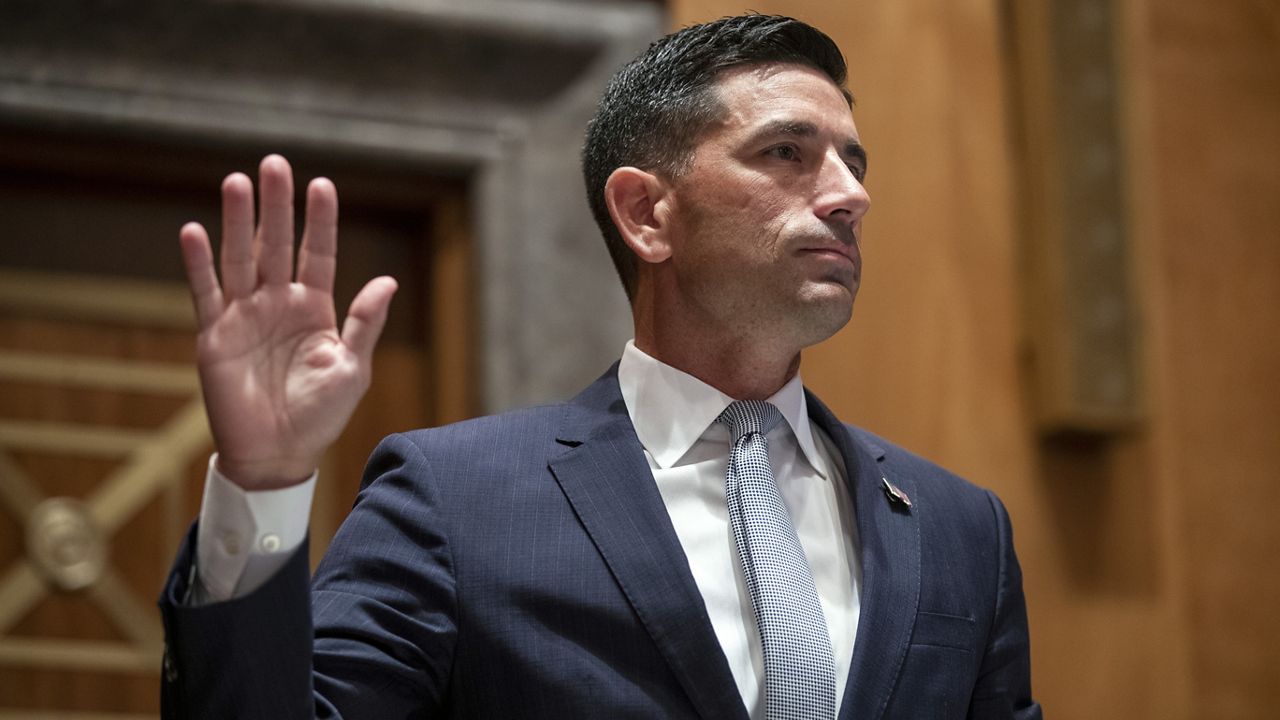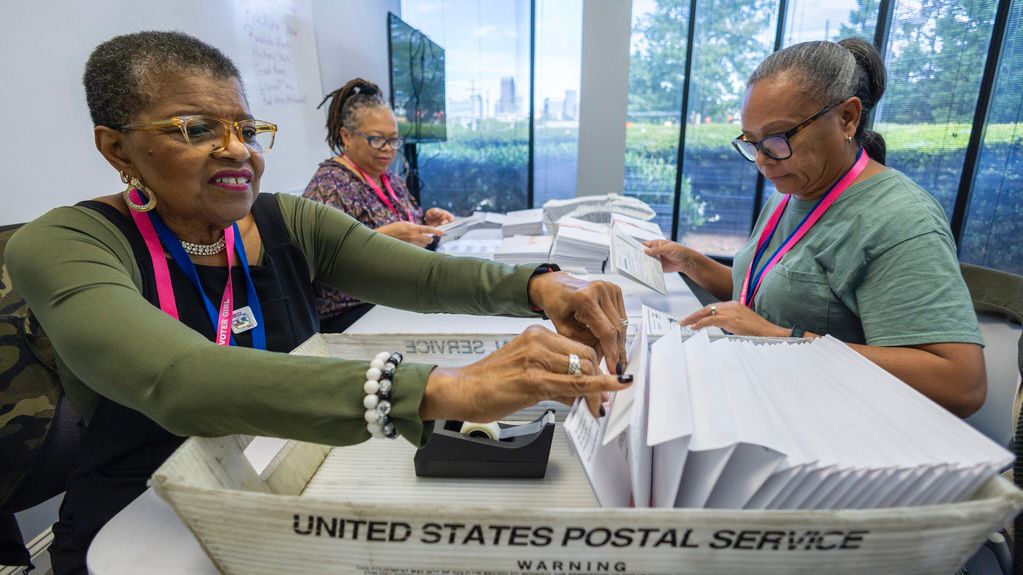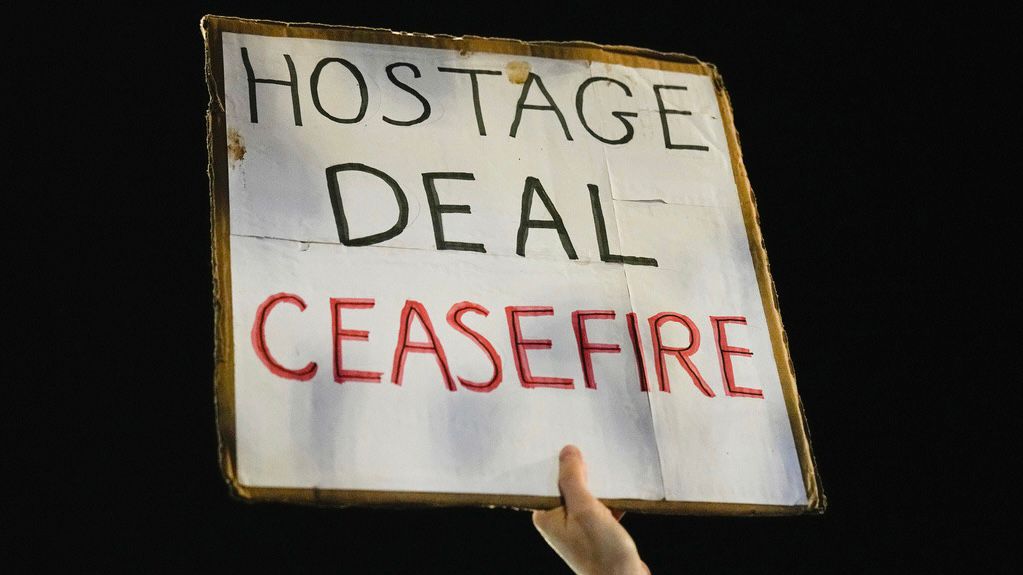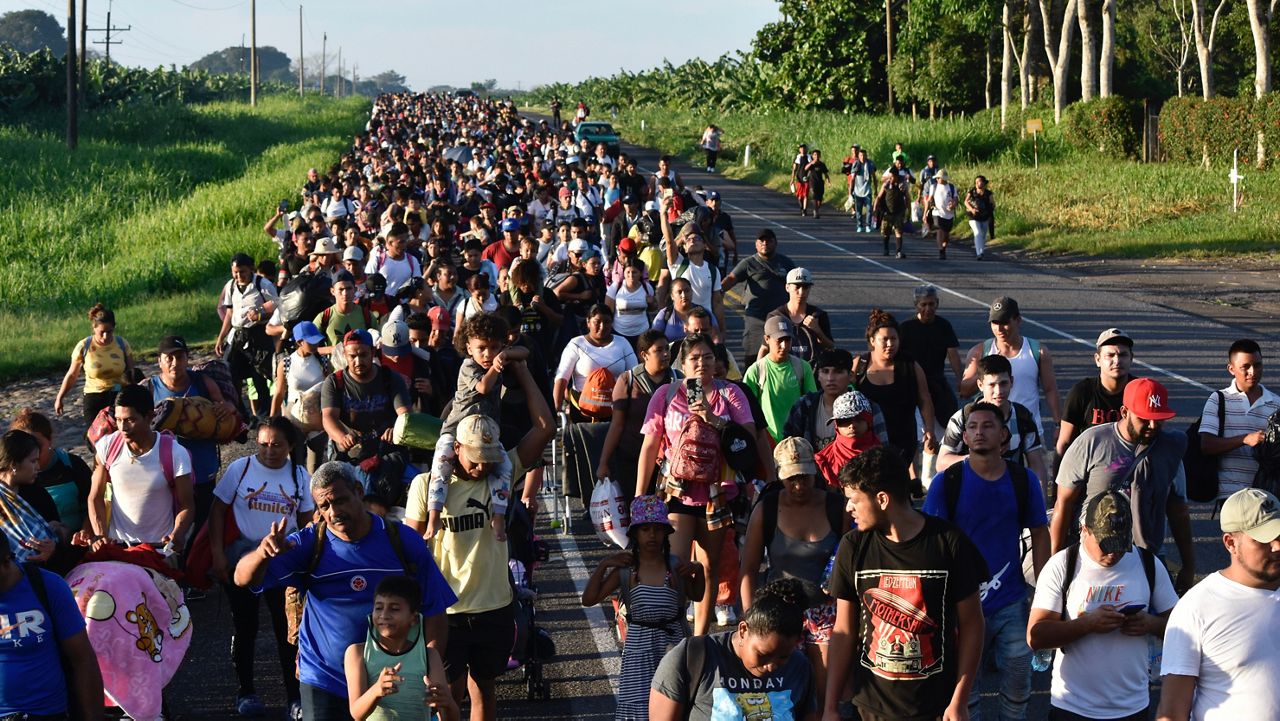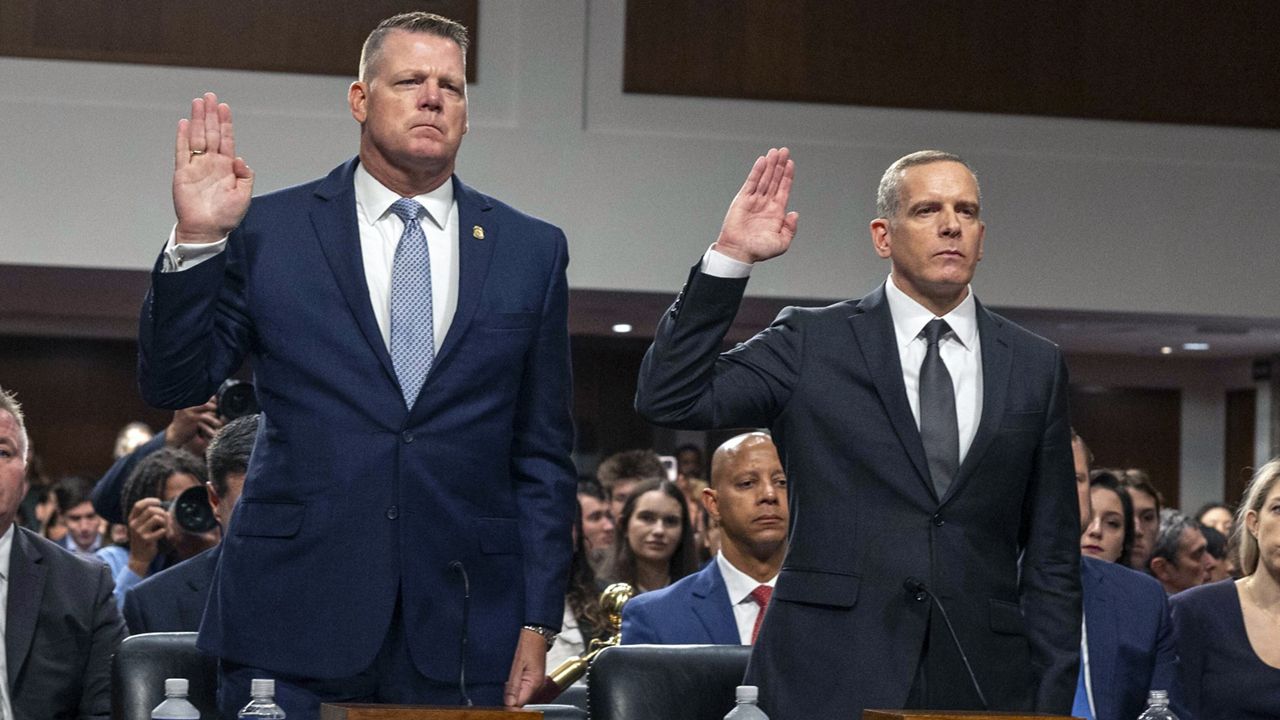WASHINGTON, D.C. — In its first-ever “Homeland Threat Assessment” released on Tuesday, the Department of Homeland Security named white supremacist groups as the single most dangerous domestic extremist threat to the nation.
The report states that “ideologically motivated lone offenders” and small groups of extremists pose the greatest terror threat to the country, with what the department refers to as “Domestic Violent Extremists” presenting the most “persistent and lethal threat.”
“As Secretary, I am concerned about any form of violent extremism. That is why we design our programs to be threat agnostic – ensuring that we can combat a broad range of domestic threats,” acting DHS secretary Chad Wolf said in a written statement. “However, I am particularly concerned about white supremacistviolent extremists who have been exceptionally lethal in their abhorrent, targeted attacks in recent years.”
Among these domestic groups, racially and ethnically motivated violent extremists – in particular, white supremacist extremists – are those who pose the greatest national threat, the report notes.
Since 2018, white supremacist groups have been responsible for more deaths than any other domestic extremist group, the report adds.
The department's assessment comes amid rising racial tensions as the deaths of multiple Black Americans at the hands of various police officers draw attention nationwide.
Indeed, the report does mention protests that broke out in cities like Portland, Kenosha, and New York City over the summer – but attributes this violence to “anti-government/anti-authority violent extremism” as opposed to specific white nationalist groups.
“These violent extremists, sometimes influenced by anarchist ideology, have been associated with multiple plots and attacks, which included a significant uptick in violence against law enforcement and government symbols in 2020,” the report states.
“Operational reporting shows that DHS law enforcement officers suffered over 300 separate injuries while they were present during months of nightly unrest in Portland, Oregon,” the report adds. “This is but one example among many across the country, including in Brooklyn, New York, and Kenosha, Wisconsin, where law enforcement officers have been injured or killed. These increasingly pervasive incidents highlight the threat of anarchist violence that has accelerated in our cities in recent months.”
The specification of anarchist groups as a domestic threat coincides with the Trump administration’s recent claims that far-left extremists, or antifa members, are responsible for protest violence, although they have offered little evidence to support this theory.
President Donald Trump has said the federal government would designate antifa as a “terrorist organization” and has blamed it for violence at protests against racial injustice and police brutality. Attorney General William Barr has claimed groups using “antifa-like tactics” fueled violent clashes in Minneapolis after the killing of George Floyd, a Black man who died after a white police officer pressed a knee into his neck for several minutes.
However, FBI Director Christopher Wray told a congressional panel in late September that antifa is more of an ideology or a movement than an organization.
While the FBI has had domestic terrorism investigations of “violent anarchist extremists, any number of whom self identify with the antifa movement,” Wray noted that extremists driven by white supremacist or anti-government ideologies have been responsible for most deadly attacks in the U.S. over the past few years.
Beyond the domestic threats to American security, the DHS warns that foreign actors also pose a threat to election infrastructure and policy – particularly amid the ongoing coronavirus pandemic. Russian and Chinese actors are the most likely culprits behind such attacks, the department says.
“Russian online influence actors have claimed that the U.S. President is incapable of managing the COVID-19 crisis and sought to exacerbate public concerns by amplifying content critical of the U.S. response to the public health crisis and the economic downturn,” the report states in part. “In contrast, the actors highlighted China’s and Russia’s alleged success against the COVID-19 outbreak and praised President Putin’s COVID-19 plan and Russia’s ample supply of tests.”
Russian actors are particularly targeting one candidate in the upcoming election: "Russia uses divisive measures to disrupt the electoral process – including denigrating former Vice President Biden and what it sees as an anti-Russia 'establishment' – as part of a broader effort to divide and destabilize America,” the report states.
While the report did not name specific individuals or groups, it has been widely reported Russia has long sought to undermine Biden’s candidacy for president.
In September, the United States Department of the Treasury sanctioned Andrii Derkach, a Ukrainian lawmaker with ties to Rudy Giuliani, for being an “active Russian agent” and attempting to interfere in the upcoming presidential election, the department said in a statement at the time.
Derkach was accused of releasing edited audio tapes of presidential candidate Joe Biden as recently as July. The tapes concerned Biden’s son, Hunter Biden, who at the time was a board member for Ukraine-based energy company Burisma Holdings.
In one, Derkach alleged that Biden promised former Ukrainian President Petro Poroshenko in 2015-16, when both were still in office, $1 billion in loan guarantees in exchange for “keeping Burisma’s schemes and international corruption in place” by ousting then-Prosecutor General Victor Shokin to prevent him from investigating the company.
But on the tape Derkach released, the two men introduced as “Vice President Biden” and “President Poroshenko” discuss replacing Shokin as a condition for the loan guarantees, but make no mention of Burisma.
Biden says the loan was linked to the removal of Shokin as part of an anti-corruption effort backed by the U.S. government, EU and international lenders.
During his testimony before the House Homeland Security Committee in September, FBI director Wray told lawmakers point-blank that Russian operatives are targeting Joe Biden in an attempt to sway the 2020 presidential election.
“The intelligence community’s assessment is that Russia continues to try to influence our election primarily through what we call malign foreign influence,” Wray testified, adding the efforts aim “primarily to denigrate vice president Biden and what the Russians see as kind of an anti-Russian establishment.”
Wray noted that intelligence officials have not seen foreign efforts to target election infrastructure this year, a tactic widely used by Russian operatives during the 2016 presidential elections.
“We have not seen that second part yet this year or this cycle, but we certainly have seen very active, very active efforts by the Russians to influence our election in 2020," Wray said of cyber security attacks similar to those in 2016.
Instead, Russian operatives are employing proxies and social media campaigns to “sow divisiveness and discord” amid the presidential elections, Wray said.
The Associated Press contributed to this report.




